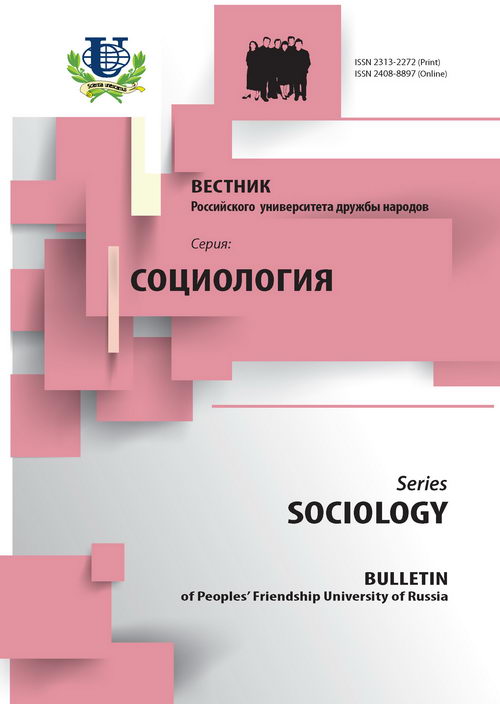Abstract
The article describes the author’s dynamic processual methodology for the sociological study of social advertising that combines the multiversion paradigmatic approach, legitimization procedures, methodological principles of interconnection, multilevel analysis and the principles of sociological data formalization developed by P. Lazarsfeld. The author explains the multi-stage strategy of the methodology and the research procedures that provide new sociological knowledge about the processes of social advertising. The first stage involves analysis of the social advertising as a number of institutional, communicative, socio-cultural and socio-technological processes. The second stage consists of the development of the substantive aspects of social advertising dynamics and its dependence on the features of different socio-demographic groups. The third stage of the methodology includes a comparative analysis of the social advertising theoretical and empirical aspects and the subsequent assessment of its fundamental and applied capabilities. The author identifies two types of research practices: the first one consists of three levels of complexity - the first one is to design the social advertising categories and concepts; the second one requires a higher level of generalization; the third one supposes justification of the universal categorization and the social advertising conceptualization for different social areas as well as a comparative analysis of the theory of the social advertising impact developed by O.O. Savel’eva with the research results for the aims of the promotion of the sociology of advertising. The article concludes with the demonstration of the proposed methodology universality for different spheres of social reality.












